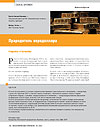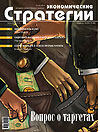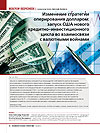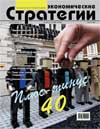Progenitor of Eurodollar
The article tells the history of creating a widespread now financial instrument — Eurodollar, about the role in its appearance of the USSR and the Soviet banks abroad — Moscow Narodny Bank in London and Eurobank in Paris, about the events preceding its appearance — the International Monetary and Financial Conference in Bretton-Woods, about the USSR’s attempts to escape from American sanctions. The article describes the consequences of introducing Eurodollar, of establishing new order for US dollar use in the world and the punishment of countries not supporting these new rules. One example of control over implementation of sanctions imposed by the United States is the story of punishing the Soviet Union for trade with Cuba, when US dollars, been applied by Moscow Narodny Bank for buying Cuban sugar, were blocked for 30 years. The article is dedicated to professionalism and ingenuity of the Soviet bankers and to the errors they committed, by inexperience.






